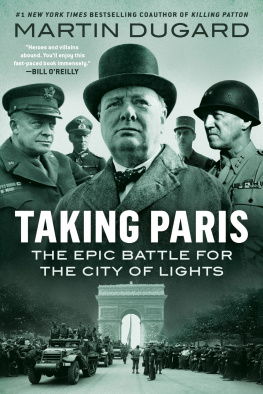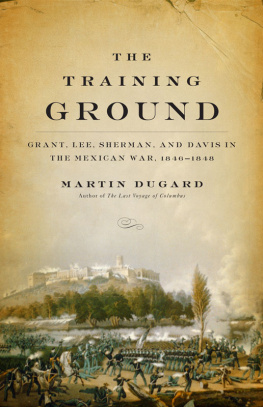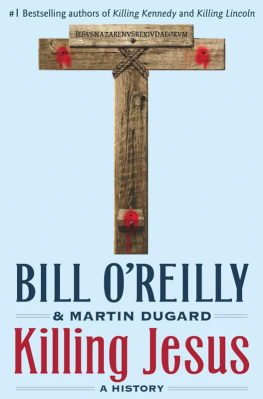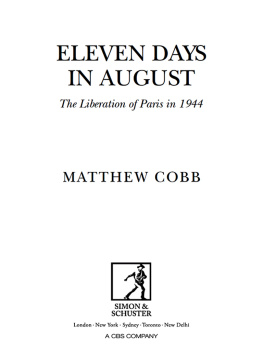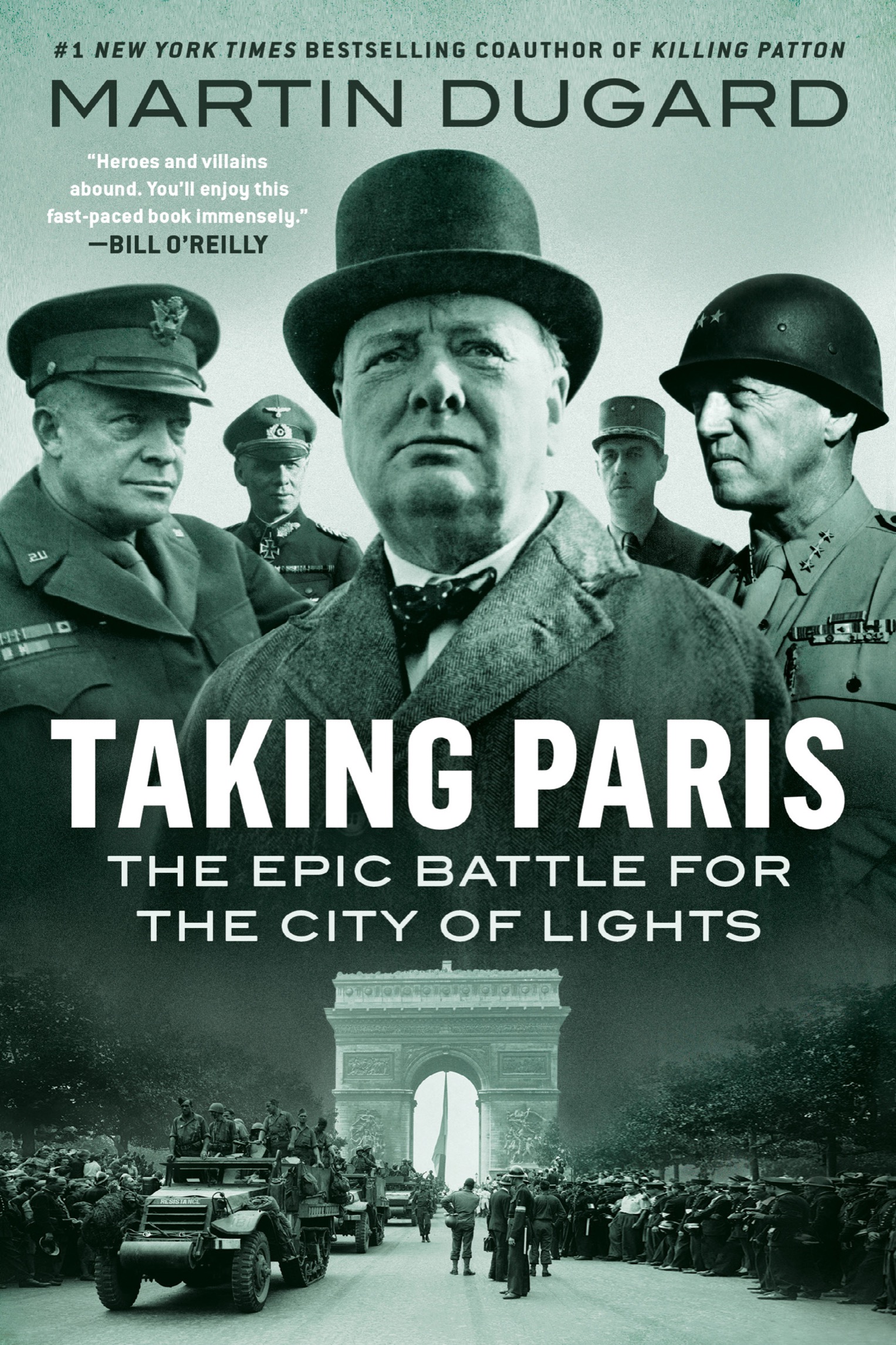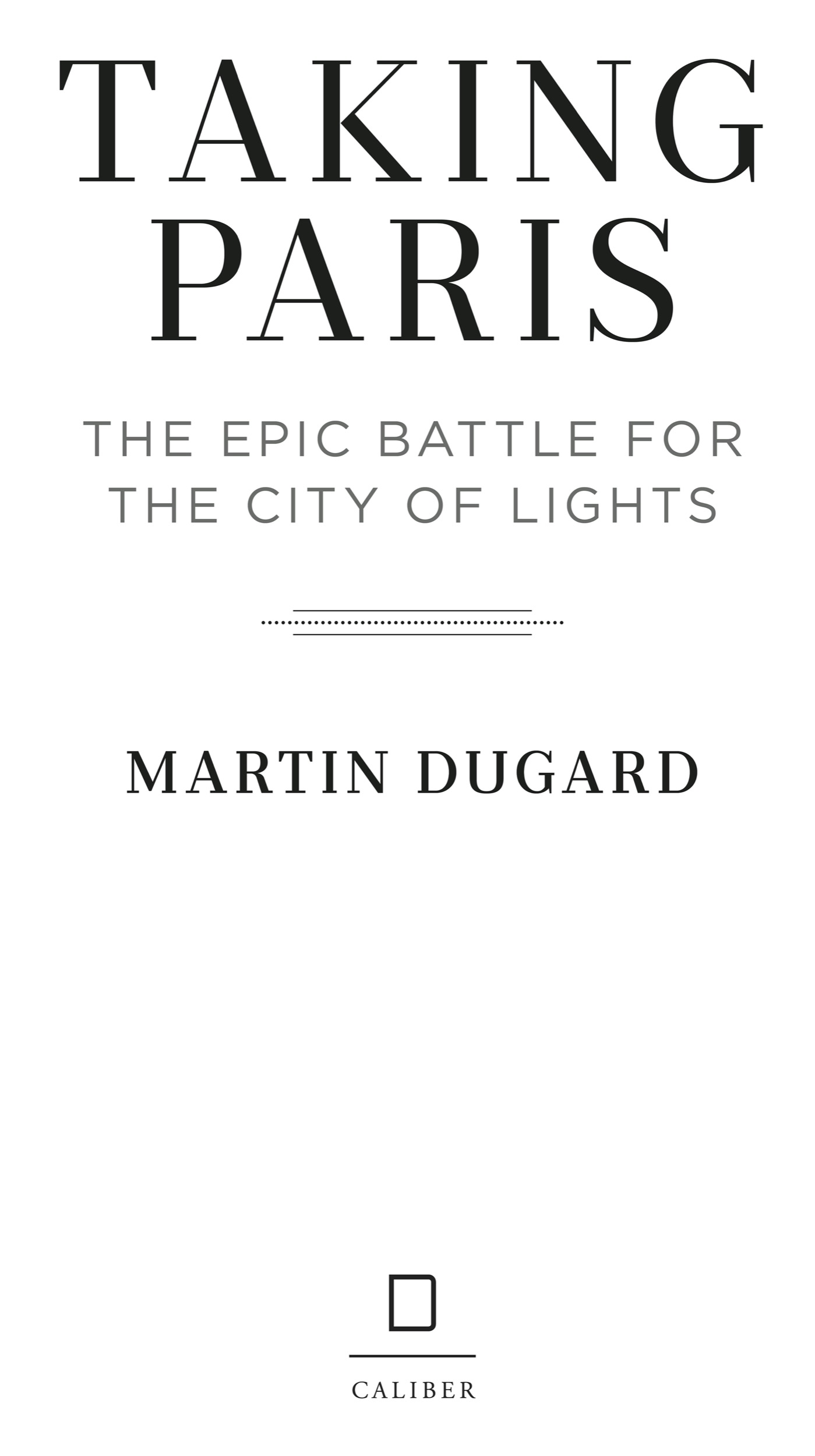
An imprint of Penguin Random House LLC
penguinrandomhouse.com

Copyright 2021 by Martin Dugard
Penguin supports copyright. Copyright fuels creativity, encourages diverse voices, promotes free speech, and creates a vibrant culture. Thank you for buying an authorized edition of this book and for complying with copyright laws by not reproducing, scanning, or distributing any part of it in any form without permission. You are supporting writers and allowing Penguin to continue to publish books for every reader.
DUTTON and the D colophon are registered trademarks of Penguin Random House LLC.
Maps by Chris Erichson
Library of Congress Cataloging-in-Publication Data
Names: Dugard, Martin, author.
Title: Taking Paris: The epic battle for the city of lights / by Martin Dugard.
Other titles: Epic battle for the city of lights
Description: [New York]: Caliber, [2021] | Includes index.
Identifiers: LCCN 2021017300 (print) | LCCN 2021017301 (ebook) | ISBN 9780593183083 (hardcover) | ISBN 9780593183106 (ebook)
Subjects: LCSH: World War, 19391945CampaignsFranceParis. | World War, 19391945FranceParis. | Paris (France)History19401944. | FranceHistoryGerman occupation, 19401945.
Classification: LCC D762.P3 D77 2021 (print) | LCC D762.P3 (ebook) | DDC 940.54/214361dc23
LC record available at https://lccn.loc.gov/2021017300
LC ebook record available at https://lccn.loc.gov/2021017301
Cover design by Steve Meditz; Cover images: [front] Dwight D. Eisenhower (Trinity Mirror / Mirrorpix / Alamy); Erwin Rommel (IanDagnall Computing / Alamy); Winston Churchill (GL Archive / Alamy); Charles de Gaulle (PictureLux / The Hollywood Archive / Alamy); General George Patton (Everett Collection Historical / Alamy); World War II. Liberation of Paris, 26 August, 1944. (Agence Roger Viollet / GRANGER); [back] Liberation of Paris. Tanks from the 2nd Armored Division chasing after German soldiers, August 27, 1944. (Agence Roger Viollet / GRANGER)
Book design by Tiffany Estreicher, Adapted for ebook by Kelly Brennan
While the author has made every effort to provide accurate telephone numbers, internet addresses, and other contact information at the time of publication, neither the publisher nor the author assumes any responsibility for errors or for changes that occur after publication. Further, the publisher does not have any control over and does not assume any responsibility for author or third-party websites or their content.
pid_prh_5.8.0_140874740_c0_r1
For Monique Dugard Lewis,
who once called Paris home
Between survival and victory there are many stages.
Winston Churchill
PROLOGUE
MAY 10, 1940
PARIS, FRANCE
6:00 A.M.
The war resumes on a Friday.
German planes swarmed all over Western Europe, the New York Times reports in this mornings edition, to the outskirts of Paris and London today in complete disregard of neutral borders.
Air-raid warnings wail in Paris as Heinkel and Dornier bombers zoom low in formation. The morning air is cool as antiaircraft guns open fire. Tens of thousands of Parisians dutifully walk and run to the Mtro tunnels at Madeleine, Place des Ftes, and Rpublique. Taking the stairs to the underground railway platforms, they wait for the all clear, enduring dank air, no running water, and a frustrating lack of toilettes.
But these thousands are the minority in a city of 3 million people. The rest of Paris sees no need to cease making breakfast, sipping coffee, making love, and otherwise preparing for a three-day holiday weekend.
By 8:00 a.m. it is over. Pariss air alarm lasted an hour and fifty-two minutes, notes the Times. Anti-aircraft batteries fired furiously. Streaking past Paris, the planes continued on to the sea.
Then Paris goes back to normal, the citizens once again marching down into the Mtrothis time to catch the train for work.
The sirens sound again at 4:55 in the afternoon, but Parisians remain calm and even blas as the drle de guerrefunny warseems to be ending. Or, as the British call it, putting a spin on the French translation: the phony war. For the eight months since Germany invaded Poland, France and its ally Britain have been on high alert, awaiting the inevitable moment when the Nazi power turns its attention westward. Both sides have declared war on one another. The next logical step is to fight.
Yet, until this morning, absolutely nothing has happened.
In the meantime, Paris has been transformed by preparations for combat: sandbags line bridges, buildings, and monuments such as the Eiffel Tower; the city is blacked out from dusk to dawn; stained glass windows have been removed from cathedrals as a precaution against aerial bombing; and great trenches have been dug in public parks as air-raid shelters.
Posters in cafs remind patrons that German spies might be eavesdropping on their conversations. Yet these placards, like the trenches and sandbags, are so commonplace and have hung on the walls so many months that they are all but ignored.
Even todays air-raid sirens fail to instill fear. The Germans may be invading Belgium, Holland, and Luxembourg, but to the people of Paris they are hardly an immediate threat. The Boche, as the French derisively call the Germans, are hundreds of miles away, soon to be beaten back by the vaunted French army.
At 7:30 p.m., Ludovic-Oscar Frossard, the French minister of propaganda, makes it official: The real war has begun, he announces.
But Monsieur Frossards pronouncement, delivered over the radio in the measured cadence of a career bureaucrat, comes so late as to be laughable. The people of Paris have already seen and heard the cacophony of this real war for themselves.
And they are unconcerned. The real war may have begun, but Paris is safe.
Let the weekend begin.
1
MAY 13, 1940
DINANT, BELGIUM
1600 HOURS
General Erwin Rommel has had a very busy weekend.
The Meuse River rages fast and cold. The loyal admirer of Adolf Hitler paddles a small rubber assault raft toward the west shore. Locals blew the bridges one day ago. This exposed crossing is the only way. Rommel and the young Wehrmacht soldiers spilling over the sides of the cramped black inflatable are not alone. All around them, German troops dig their paddles into the green current, desperate to reach the far shore, where heavily fortified French troops lay down thick rounds of fire.
On the steep west bank... the enemy had numerous carefully placed machine-gun and anti-tank nests as well as observation points, each one of which would have to be taken on in the fight, Rommel will report. They also had both light and heavy artillery, accurate and mobile.
Some French defenders are hidden in concrete bunkers on the high rocky bluffs, while others aim their M29 machine guns out the windows of abandoned homes on the waters edge. Still other French fighters launch heavy artillery from the ruins of the Crvecoeur Castle, near a mighty bend in the river where spotters have a clear view of the German attackers.

